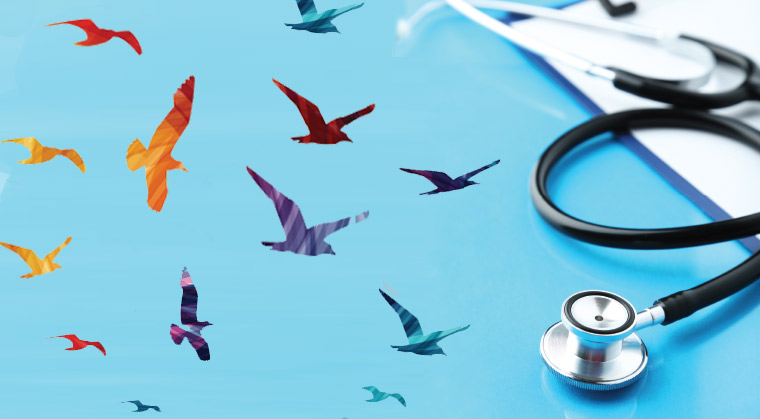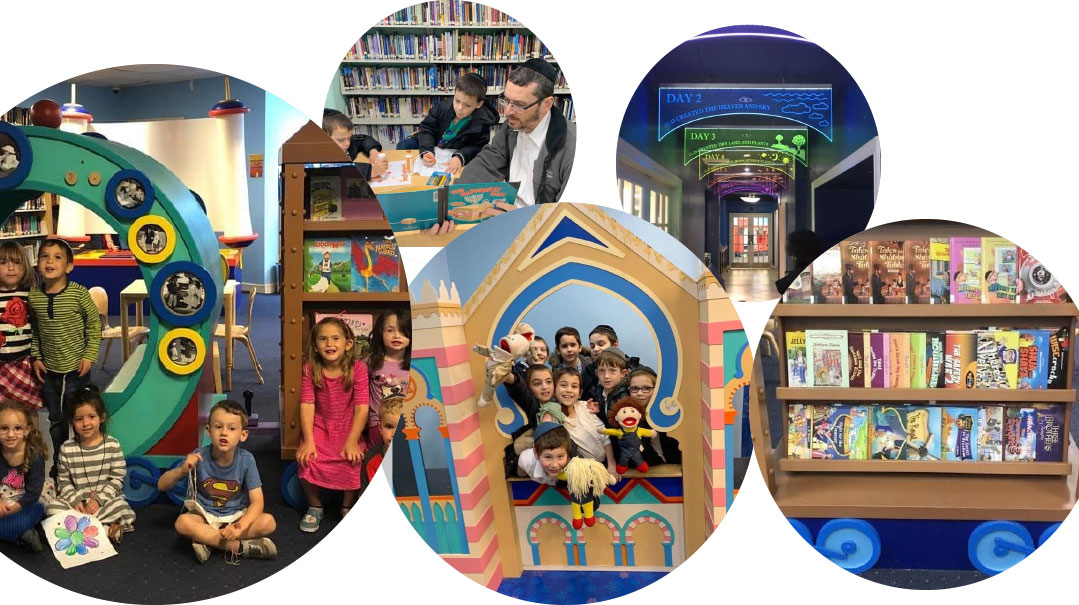Dreamscapes: Become a Nurse

It was time to look the monster in the eye: I went to get evaluated and finally realized what had been holding me back all those years

Name: Goldie Burstein
Dream: Become a nurse
Location: Brooklyn, NY
If you knew me as a child, you wouldn’t believe that I’m the one telling this story. I was painfully shy.
I also adored babies and animals. During the summers my family spent in the Catskills, I’d nurture stray cats and tend to birds’ broken wings.
My dream was to turn my passion into a vocation by becoming a nurse. My parents, who were Holocaust survivors, discouraged me. They considered nurses to be glorified cleaning help — mopping floors and emptying bedpans. Not a career for a nice Jewish girl.
It didn’t help that school was difficult for me. Though I was bright, math and memorization were huge challenges. My academic struggles cast a shadow over my younger years, battering my self-esteem.
When my second child was in preschool, we suspected he’d also have a tough time in school. Intelligent and a little quirky, he was having a hard time reading, which stemmed from visual perception and processing difficulties.
I vowed that I would not let my son’s challenges limit his potential. We hired private tutors six days a week and enrolled him in art and karate. Our son’s education was a priority, so we cut back in other areas. I served a lot of macaroni for dinner.
I became my son’s advocate and got him the best support available, guided by the incredible Helen Ribowsky, PhD. His wonderful tutor, Faygie Waldman Horowitz, taught fractions through baking and ABCs through tactile activities. Today, my son is a successful psychologist and directs a large network of mental health clinics in Maryland.
Watching my son struggle caused something to click in my mind. I related to his way of learning. He needed things broken down; simply working hard was not enough. I saw myself in his struggles, because that was how I learned, too.
It was time to look the monster in the eye: I went to get evaluated and finally realized what had been holding me back all those years.
Being diagnosed with learning disabilities was a watershed moment for me. It validated my years of struggle. I wasn’t lazy or unmotivated — I had a real condition that hampered my efforts to learn.
This took me a while to process. I had given up my dream of nursing, and I was ruminating over what could have, should have, would have been.
I didn’t want to spend my life grieving for missed opportunities. I decided to plunge in.
Getting into nursing school was hard. I was 40, already a mother of five, and admissions were competitive. I needed a straight-A average on the prerequisites to have a shot.
I realized that admissions officers didn’t care how quickly you completed your prerequisites; they only looked at your grades and NLN score. So initially, I took one course each semester, mastering the material at my own pace.
Working with my son, I’d discovered what I needed in order to learn: extra study time, pre-reading, tactile memory aids, repeatedly writing down information. Goodness knows how many trees I killed during those years.
I studied twice as hard as everyone else and didn’t pay attention to what others were doing. I graduated from nursing school with honors and with two awards — in Pediatric Nursing and “the most determined, persevering student.”
Over the years, I’ve been privileged to work in a variety of settings. In my 18 years in women’s health, I’ve learned that an empathetic frum nurse can really help Orthodox patients, if she listens to what the patient is trying to communicate, not just to the words.
When students worked with me during their clinical rotations, I instructed them to always follow protocols, no matter who the patient is. A nurse can’t judge or make assumptions. The way a person dresses does not define her or determine her healthcare needs; everyone deserves a full assessment.
I also stressed the importance of reassuring patients that nurses are confidential and non-judgmental. As a frum nurse, I never offer unsolicited advice. But when asked for a rav who could help with a difficult decision, I offer a list of resources, maybe even organizations who could provide more than just an answer to a sh’eilah.
The latest unexpected twist in my journey came recently. At 61, my PCP gave me a prescription to enhance my concentration at a medical conference. Shocked by the positive effect, I decided to get evaluated by a psychiatrist, who was surprised that I never realized I had Attention Deficit Disorder.
I couldn’t have ADD — I was the organized type who woke up at 4:30 a.m. to cook, do laundry, and review notes. He explained that I was intuitively compensating by getting up early because I knew I’d never be able to get things done when other people were around to distract me.
Here I am in my sixties, adjusting to yet another of life’s curveballs. I’m so grateful to have been allowed to unlock my potential. I know the pain of failure. If I can motivate anyone to overcome their challenges and tell them that they have the key to their mind, it will all be worthwhile.
What superpower would you give yourself in daydreams? I always wanted a big, juicy brain, like in the Wizard of Oz. But I realized the best superpower is the ability to enjoy Hashem’s gifts and understand that the “little things” really are the “big things.”
Childhood memories: I grew up on the same block as Rav Moshe Feinstein ztz”l. In our neighborhood, it was in poor taste to flaunt wealth. I learned that while it was important to be a frum Yid, it was more important — and harder — to be an ehrliche Yid.
If I had unlimited resources: I’d build an all-encompassing women’s health center, including medical and mental health providers; as well as support groups and community outreach.
(Originally featured in Family First, Issue 603)
Oops! We could not locate your form.













